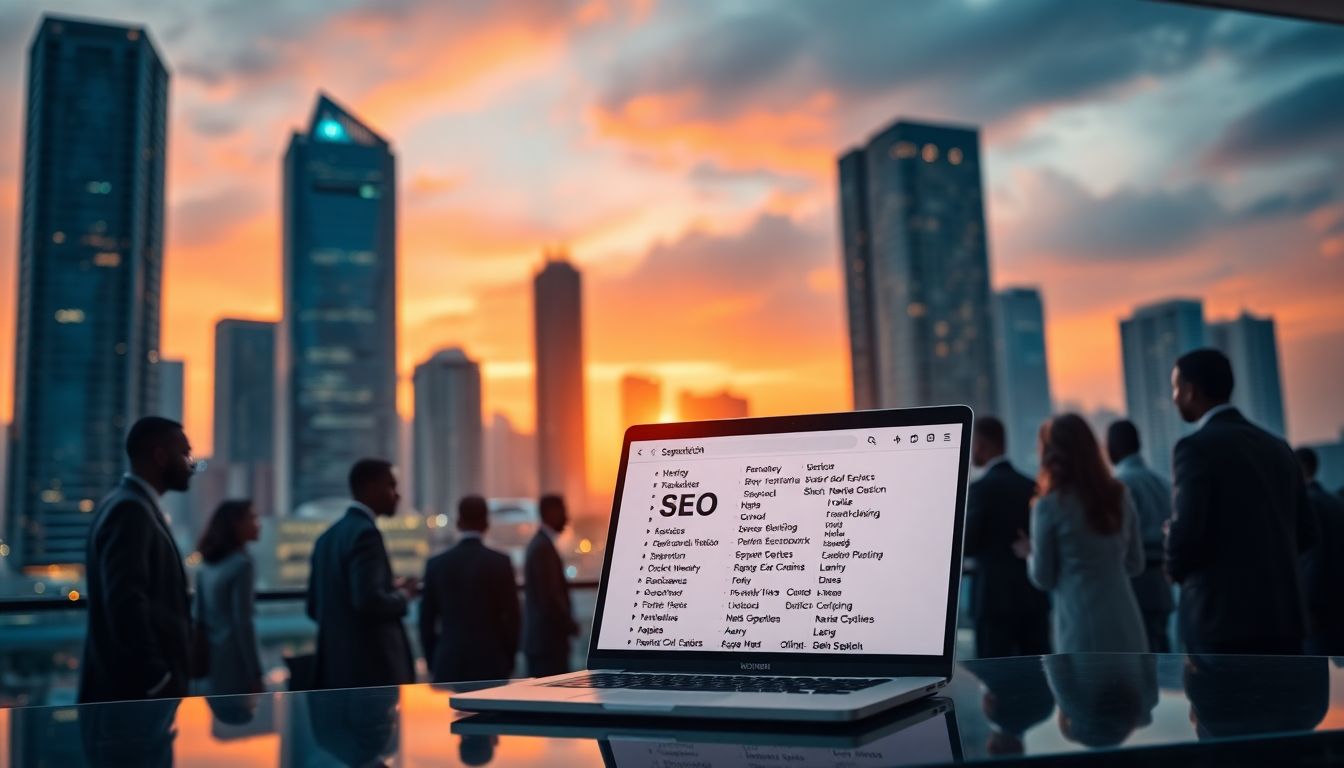SEO vs. PPC: Which digital marketing strategy is right for your business?

1. Introduction: Understanding the importance of digital marketing for businesses
In today’s highly competitive digital landscape, having a strong online presence is crucial for businesses of all sizes. Digital marketing strategies play a vital role in helping businesses reach their target audience, increase brand visibility, and drive conversions. Among the various digital marketing tactics available, SEO (Search Engine Optimization) and PPC (Pay-Per-Click) advertising are two popular approaches. In this article, we will delve into the world of SEO and PPC, exploring their benefits, strategies, and key differences. By understanding these two strategies, you can make an informed decision on which approach is best suited for your business and maximize your digital marketing efforts.
1. Introduction: Understanding the importance of digital marketing for businesses
Digital marketing has become an essential component of any successful business strategy. In today’s highly connected world, where customers turn to the internet for everything from product research to purchasing decisions, having a strong online presence is crucial. Two popular digital marketing strategies that businesses often consider are SEO (search engine optimization) and PPC (pay-per-click advertising). But which one is right for your business? In this article, we will delve into the world of SEO and PPC, exploring their benefits, strategies, and ultimately comparing their approaches, costs, and ROI to help you make an informed decision.
2. Exploring SEO: Benefits and strategies for organic search engine optimization
2.1 The importance of organic search traffic
You know that feeling when you search for something on Google and find exactly what you’re looking for on the first page of results? Well, that’s the power of SEO. Organic search traffic refers to the visitors who find your website through unpaid search engine results. By optimizing your website for search engines, you can climb the ranks and attract more organic traffic. The beauty of organic search traffic is that it’s long-lasting, targeted, and, most importantly, free!
Elevate Your Brand Visibility in Africa with AdHang’s SEO Expertise. Take Your Business to the Next Level.
2.2 On-page SEO techniques
On-page SEO techniques involve optimizing various elements on your website to improve its visibility and relevance to search engines. This includes optimizing your website’s content, meta tags, headings, URLs, and internal linking structure. By ensuring that your website is technically sound and filled with valuable, keyword-rich content, you increase your chances of ranking higher in search engine results.
2.3 Off-page SEO strategies
Off-page SEO strategies are all about building your website’s authority and credibility outside of your own website. This includes earning backlinks from reputable websites, establishing a strong social media presence, and engaging in influencer marketing. Off-page SEO not only helps improve your website’s visibility in search engine results but also enhances your brand’s reputation and online authority.
3. Unveiling PPC: Advantages and tactics for pay-per-click advertising
3.1 The benefits of pay-per-click advertising
If you’re looking for immediate results and a targeted approach, PPC advertising might be the way to go. With PPC, you can create ads that appear at the top of search engine results pages or on relevant websites, and you only pay when someone clicks on your ad. This means you can reach your ideal audience and see instant traffic to your website.
3.2 Setting up successful PPC campaigns
Setting up a successful PPC campaign involves careful planning and strategic execution. You need to identify relevant keywords, create compelling ad copy, and optimize your landing pages for conversions. Additionally, monitoring and adjusting your campaigns based on performance data is crucial to maximize your return on investment.
3.3 Targeting the right audience with PPC
One of the great advantages of PPC advertising is the ability to target specific demographics, locations, and interests. By narrowing down your audience, you can ensure that your ads are shown to people who are more likely to be interested in your products or services. This targeted approach increases the chances of converting clicks into actual customers.
4. Comparing SEO and PPC: Key differences in approach, cost, and ROI
4.1 Understanding the fundamental differences between SEO and PPC
While SEO and PPC are both digital marketing strategies, they approach the goal of increasing website visibility in different ways. SEO focuses on organic search traffic and long-term results, whereas PPC provides immediate visibility through paid advertisements. So, it’s important to consider whether you want to invest in long-term organic growth or prioritize short-term paid visibility.
4.2 Examining the cost considerations for SEO and PPC
When it comes to cost, SEO is generally more cost-effective in the long run as it doesn’t require direct payments for clicks. However, achieving high rankings organically can take time and resources. On the other hand, PPC involves paying for each click, making it more immediate but potentially more costly, especially for highly competitive keywords.
4.3 Analyzing the ROI potential of SEO and PPC
Determining the ROI potential of SEO and PPC depends on various factors, including your business goals, target audience, and industry competitiveness. SEO’s long-term approach can yield significant returns by driving consistent organic traffic and establishing a strong online presence. PPC, on the other hand, can deliver immediate results and precise targeting, making it ideal for short-term campaigns or businesses in highly competitive markets.
In conclusion, choosing between SEO and PPC ultimately depends on your specific business needs, budget, and goals. SEO focuses on long-term organic growth and building authority, while PPC offers immediate visibility and precise targeting. Understanding the differences, benefits, and costs associated with each strategy will help you make an informed decision and create an effective digital marketing plan for your business.
5. Considerations for choosing the right strategy: Factors to evaluate for your business
5.1 Assessing your business goals and objectives
When deciding between SEO and PPC, it’s essential to first understand your business goals and objectives. Are you looking to increase brand visibility, drive more organic traffic, or generate immediate sales? SEO is a long-term strategy that focuses on improving your website’s organic search rankings, while PPC offers immediate visibility and targets specific keywords. Knowing your goals will help determine which strategy aligns best with your business objectives.
5.2 Evaluating your target audience and market competition
Consider your target audience and the level of competition in your industry. SEO can be a more effective strategy if you have a niche market or less competition. On the other hand, if you operate in a highly competitive industry, PPC can provide immediate visibility and help you stand out among competitors. Understanding your audience and market competition will help you make an informed decision on which strategy will yield better results.
5.3 Budget considerations for SEO and PPC
Budget is a crucial factor to consider when choosing between SEO and PPC. SEO is generally more cost-effective in the long run but requires continuous effort and time to see significant results. On the other hand, PPC allows you to set a specific budget and pay for each click, giving you more control over your spending. Take into account your available budget and weigh the potential returns on investment to determine which strategy is more feasible for your business.
6. Case studies: Successful implementation of SEO and PPC in different industries
6.1 Case study 1: How Company X utilized SEO to boost organic traffic
In this case study, Company X, a small e-commerce business, focused on implementing SEO strategies to improve its organic traffic. By conducting keyword research, optimizing their website’s content, and building high-quality backlinks, they saw a significant increase in organic search rankings. This resulted in a steady stream of targeted organic traffic and ultimately boosted their online sales.
6.2 Case study 2: How Company Y achieved great results with a PPC campaign
Company Y, a startup in the software industry, leveraged PPC to quickly gain visibility in a competitive market. They carefully selected relevant keywords, crafted compelling ad copy, and optimized their landing pages. With a well-executed PPC campaign, they were able to generate immediate leads and drive conversions, establishing a strong customer base from the start.
Dominate Nigerian Search Results with AdHang’s Proven SEO Solutions. Drive Traffic and Conversions Today!
6.3 Case study 3: Combining SEO and PPC for maximum impact in Company Z
Company Z, a medium-sized service-based business, successfully combined SEO and PPC strategies to maximize their digital marketing efforts. By investing in SEO for long-term organic growth and using PPC to target high-intent keywords, they achieved a strong online presence. This approach allowed them to capture both organic and paid traffic, resulting in increased visibility, higher click-through rates, and improved conversion rates.
7. Finding the balance: Leveraging a combination of SEO and PPC for optimal results
7.1 Understanding the benefits of combining SEO and PPC
While SEO and PPC have their individual strengths, combining the two can yield even better results. SEO provides long-term stability, while PPC offers immediate visibility. By combining both strategies, you can maximize your online presence, increase brand awareness, and drive targeted traffic to your website.
7.2 Developing a cohesive SEO and PPC strategy
To develop a cohesive SEO and PPC strategy, start by identifying common keywords and themes. Use the insights from your SEO keyword research to inform your PPC campaigns. Optimize your landing pages for SEO and ensure consistency in messaging across both organic and paid search results. By aligning your efforts, you can create a seamless user experience and increase the effectiveness of your digital marketing campaigns.
7.3 Monitoring and adjusting your SEO and PPC efforts
Continuously monitor the performance of your SEO and PPC campaigns to identify areas for improvement. Track key metrics such as organic rankings, click-through rates, conversion rates, and return on ad spend. Use this data to make data-driven decisions and adjust your strategies accordingly. Regularly optimizing your SEO and PPC efforts will help you stay ahead of the competition and maximize the results of your digital marketing campaigns.
8. Conclusion: Making an informed decision and maximizing your digital marketing efforts
Choosing between SEO and PPC is not a one-size-fits-all decision. It requires careful consideration of your business goals, target audience, market competition, and budget. While each strategy has its merits, finding the right balance by combining SEO and PPC can lead to optimal results. By understanding the benefits of each approach, studying successful case studies, and continuously monitoring and adjusting your efforts, you can make informed decisions and maximize the impact of your digital marketing strategies. So, let the SEO vs. PPC battle begin, and may the digital marketing odds be ever in your favor!
8. Conclusion: Making an informed decision and maximizing your digital marketing efforts
In the digital marketing realm, the choice between SEO and PPC can be a challenging one. Both strategies offer unique advantages and have their place in a comprehensive marketing plan. By carefully evaluating your business goals, target audience, budget, and competition, you can determine the right approach for your specific needs. It is also important to remember that SEO and PPC can work together synergistically, offering even greater results when combined effectively. Ultimately, the key to success lies in staying informed, adapting your strategies as needed, and continuously monitoring and optimizing your digital marketing efforts to ensure maximum impact and return on investment.
FAQs
1. Which strategy, SEO or PPC, is more cost-effective?
Both SEO and PPC have their own cost considerations. SEO requires an investment in time and resources to optimize your website and content for organic search rankings. PPC, on the other hand, involves paying for each click on your ads. While SEO can be more cost-effective in the long run, as it generates organic traffic without ongoing ad spend, PPC can deliver immediate results and provide more control over your advertising budget.
2. Can I use both SEO and PPC together?
Absolutely! In fact, combining SEO and PPC can have a synergistic effect on your digital marketing efforts. SEO can help generate long-term organic traffic, while PPC can offer immediate visibility and targeted advertising. By leveraging both strategies, you can maximize your reach, increase brand exposure, and drive more quality traffic to your website.
3. How long does it take to see results with SEO and PPC?
The time it takes to see results with SEO and PPC can vary. With SEO, it typically takes time to see noticeable improvements in organic rankings and traffic, as it involves optimizing various aspects of your website and waiting for search engines to index and rank your pages. PPC, on the other hand, can yield immediate results, as your ads are displayed as soon as your campaign is live. However, both strategies require ongoing monitoring, adjustments, and optimization to achieve the best results over time.
4. Is one strategy better than the other?
There is no one-size-fits-all answer to this question, as the effectiveness of SEO and PPC depends on various factors such as your industry, target audience, budget, and business goals. It is important to evaluate your specific needs and resources to determine which strategy aligns better with your objectives. In many cases, a combination of both SEO and PPC can provide the best results, offering a well-rounded digital marketing approach.

AdHang.com is a No.1 agency for digital marketing in Nigeria and the first internet public enlightenment agency in Africa. AdHang has all that are needed to achieve your digital marketing objectives and goals. From strategic digital marketing, a tactical approach to employing advanced digital marketing tools and technologies, using seasoned marketers with decades of marketing communications experience.










